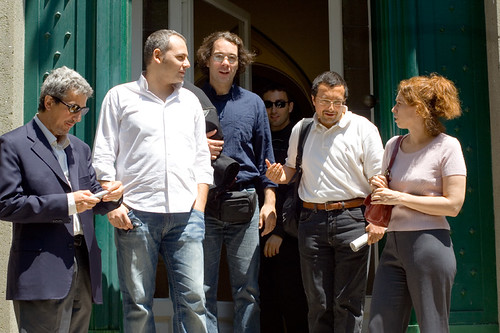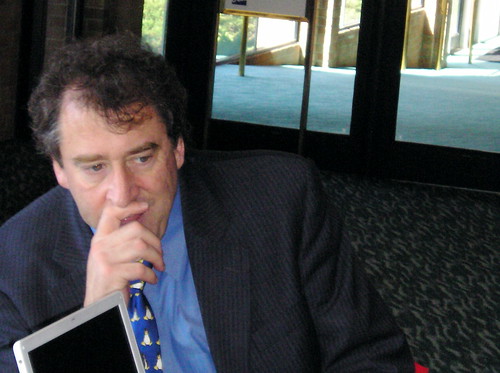European Open Source Projects: Qualipso deliverables on business models (part II)
QualiPSo – the ever largest Open Source initiative funded by the European Commission – is making public its first results, and I just started to analyze them.
The goal of the project is “to define and implement technologies, procedures and policies to leverage the Open Source Software development current practices to sound and well recognised and established industrial operations”.
QualiPSo includes 7 research and development domains (QualiPSo Competence Centres, business models, next generation forge, trustworthy results and process, information management, interoperability, legal issues), articulated in 10 work areas.
Today I read the deliverable “State of the art concerning business models for systems comprising open source software“, apparently the most promising result within the “business models” research area.
 Calypso Cabaret by Sackerman519
Calypso Cabaret by Sackerman519
Looking at the document as a whole, basically it is an essay of pretty known and old articles, like the Seven open source business strategies for competitive advantage, by John Koenig, and the mentioned many times “Economics of Open Source” of my buddy Carlo Daffara, plus some minor citations. Not a single new business model, they just mentioned Open Source (?) Franchising, not exploiting it any further.
I must admit I learned about Sunil Joshi citations, but I honestly expected to find something more than things grasped around the net, sometimes even without double check. For example they happened to cite the Orixo consortium, so I guess they didn’t take a chance to talk with a representative, neither to read Gianugo advising on using consortia nor looking at the Orixo’s events section. On the contrary I didn’t read a mention of ZEA or Open Source Consortium, just to name two of them. I would warmly recommend them to add these, at least.
I found it auto-referential just as the already mentioned deliverable D2.1.2 , since chapter 3 “BIG INDUSTRY OSS BUSINESS MODELS CASE STUDIES” is only about 4 QualiPSo’s members.
Last but not least, chapter 4 “SME OSS BUSINESS MODELS CASE STUDIES” results to be a list of cases collected by the official sites of those firms, mostly cut&pasting public information available, not a deep research I would say.
QualipSO seems following a Ferengi’s rule: Sell the sizzle, not the steak, I hope they will come out with something interesting soon..

 Pietro Folena, courtesy of
Pietro Folena, courtesy of  Amanda Lorenzani
Amanda Lorenzani Italian coffee
Italian coffee  Italian bloggers meet Bruce Perens by
Italian bloggers meet Bruce Perens by  Resting Gazelle, by
Resting Gazelle, by  Bruce Perens by
Bruce Perens by
Josef Assad 8:20 am on August 27, 2007 Permalink
No surprises, Roberto.
At a very high level, I think the involvement of the EU in open source needs to be more enabling and less leading. I don’t think free culture is rocket science, and I agree with you that regurgitation of what is known is a waste of funds, but it is also a natural consequence.
Rather than
create the environmentforopen sourceadoption, it is my opinion that EU funds would be better directed at creating the conditions through which a free culture environment will organically develop. I’ve emphasised the operative words.I don’t think free culture lends itself very willingly to massive orchestrated initiatives, but that doesn’t mean that dep pockets can’t make significant impact.
Roberto Galoppini 12:49 am on August 28, 2007 Permalink
Hi Josef,
to the create the conditions you talk about, the dissemination should have a prominent role in projects like this, but as Hemingway wrote:
The research phase should investigate, analyze and organize known facts in depth, if its ambition is:
What I am saying here, is that at the present stage deliverables like this can’t be an appropriate tool to help IT firms to include Open Source Software in their actual business strategy.
About deep pockets, I must tell you that as European citizen I am concerned about how public money is spent.